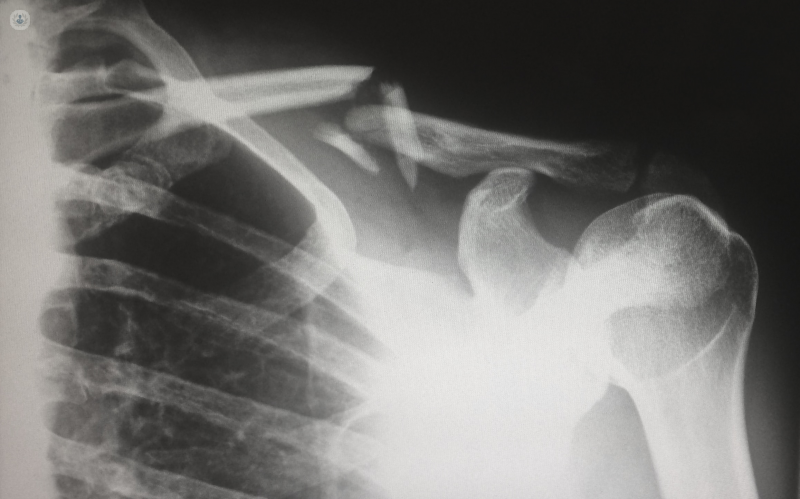


What is a fracture?
A fracture is the medical term for a broken bone.
There are many different kinds of fracture; the type often depends on the severity of the cause. The break may be total or partial. If the force of the trauma only slightly exceeded the breaking point, the bone may merely crack. However, in the case of extreme force, such as in a road traffic accident, the bone may be shattered. If the broken bone then punctures the skin, this is known as a compound fracture or open fracture.
Types of fracture
There are various ways to classify types of fracture, including by mechanism (e.g. trauma or pathology), by anatomy (i.e. location in the body – rib fracture, arm fracture, etc), by fracture pattern (e.g. transverse), or by whether or not the soft tissue is also damaged (i.e. open or closed fractures).
Examples of types of fracture that you may have heard of include:
Read more about fractures in different parts of the body here:
Causes of fractures
The main cause of fractures is trauma, i.e. a hard, physical impact. Common causes of trauma sufficient to break a bone include:
Other factors that can make bones more susceptible to fracture include low bone density and osteoporosis, both of which weaken the bones. Routinely overloading your bones can also lead to stress fractures (very small cracks).
Can fractures be prevented?
There is no sure-fire way to prevent a fracture, but you can reduce your risk.
Treatments for fractures
In terms of treatment, fractures must be reset so that the bone can heal and the pieces can fuse back together. In many cases, the bones must first be realigned (reduction) before the healing process can begin. These are different ways to accomplish this, depending on the severity of the break:
Depending on the severity of the fracture, it can take anything from several weeks to many months to heal. Patients should adhere to their doctors’ advice as to when and how they should approach returning to normal activity, as the pain usually stops before the bones have fully recovered their strength, leading to a false sense of confidence. Also, the muscles in the immobilised area tend to lose strength during the recovery period, and may require rehabilitation.
Which type of specialist treats fractures?
Orthopaedic surgeons, particularly those specialising in trauma, treat fractures.
